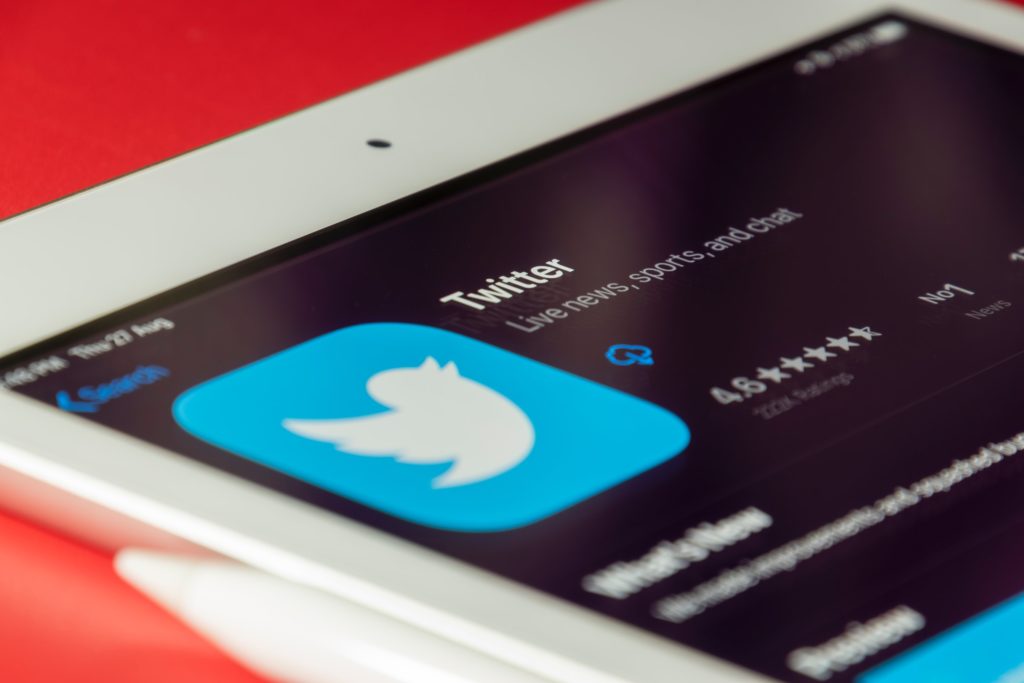
Published March 20, 2022
As I sit down to write this, I’m experiencing a vague urge to log on and check Twitter. Luckily for me, I can’t. Last year, I asked my then-fiancé to change the password to my Twitter account and keep the new log-in information from me. It was among the best and most life-changing decisions I’ve made, though not quite as life-changing as the decision to marry him.
I’ve had a Twitter account for almost exactly ten years. I opened the account at the urging of my high-school friends shortly before we graduated, back when many more people used Twitter the way they use Instagram today: to share random thoughts and experiences for the benefit of their very few followers. It hadn’t yet fully morphed into the go-to spot for news and commentary, displacing blog culture and becoming a place where politicians, pundits, and celebrities are expected to have something to say all the time about everything — a culture that, unsurprisingly, results in many people saying uninformed, incendiary, and entirely unnecessary things.
It isn’t that Twitter, or social media at large, is all bad. Left entirely without it, I’m sure my work as a journalist and opinion writer would suffer. Twitter is unique in how it has enabled me to share my writing with readers, reach new ones, receive substantive feedback, learn about and interact with others in my field, and even create some friendships. Most recently, Twitter enabled me to talk to a total stranger who has expertise in car insurance, a topic that has, unfortunately, been relevant to me lately.
But all those benefits are not without costs, and serious ones. As I’ve written elsewhere, after about five years of near-daily Twitter use, I could actually feel the platform wreaking havoc on my attention span. I think most of us would acknowledge that digital technology affects our ability to focus, and, indeed, that it fosters actual addiction if you aren’t exceptionally careful. Twitter is far from the only culprit, to be sure, but in my case, it was the chief one.
In his book Digital Minimalism, computer-science professor Cal Newport writes that making small tweaks in how we use technology can never fully overcome the fact that these digital tools are intentionally designed to cause addiction. Rather than “minor corrections” or “willpower,” Newport writes, we need to examine our use of technology, decide whether it aligns with our deepest values, and radically reject any aspects of it that do not serve us. In my case, I realized that the downsides of using Twitter would require more of a response than a halfheartedly enacted daily time limit or vague resolutions to “use it less.” It required forcibly severing my contact with it, guarded by someone other than myself
Spending the work day constantly clicking back and forth between reading, writing, and scanning the opinions of the thousand people I followed — not to mention the allure of throwing out a few casual, sound-byte–length opinions of my own — significantly detracted from my ability to concentrate and my willingness to focus on writing as a craft.
Perhaps it’s almost too obvious even to note, but I found that I always did my best work when Twitter was totally closed. This latest adaptation, of giving away my password, has added the further benefit of making Twitter not only closed but near-inaccessible. Over a long period of practicing this habit, the draw to log on while doing other work has diminished significantly.
But the effect on the attention span isn’t the only danger of Twitter. Writers have always been a notoriously distractible and distracted bunch. These days, if it’s not Twitter, it’ll be some other form of technology or social media, especially if you’re determined to procrastinate. What’s unfortunate about Twitter in particular is the dumbed-down intellectual atmosphere it creates, the way it facilitates and rewards crude, oversimplified, and unkind commentary about important, complicated topics.
Even when I managed to limit the distraction factor, I found myself beginning to dislike the nasty, combative culture that Twitter fosters. I hated the way people in “real life” spoke about minor Twitter spats as if they deserve serious attention or had any real bearing on the world in front of us. “Fighting” with prominent Twitter users is now viewed as a pastime of sorts, and even a badge of honor. I found myself rolling my eyes when I found entire news stories dedicated only to chronicling something that “happened” on Twitter.
Most of all, I began to resent seeing intelligent people that I respect, people I considered my friends, use Twitter to share half-baked thoughts and uncharitable sniping — often toward people they also once regarded as friends — simply because that’s what Twitter’s attention economy incentivizes. I began to resent seeing those same tendencies in myself.
And so I logged off, handing the power to log on again to my husband — who, in his wisdom and prudence, has never had a single social-media account aside from LinkedIn, which I maintain isn’t really social media at all.
I still use Twitter about once a day to post my articles, share other work I enjoy, and offer occasional thoughts on the news of the day. But most of the time, I’ve found that if it isn’t worth saying in an article or a blogpost, it probably isn’t worth saying at all. In this new habit that I’ve forced on myself, I’ve found great peace and freedom; I wrote this whole column, for instance, without visiting social media even once.
Making a serious effort to abandon the damaging parts of Twitter while retaining only its few benefits is my small act of resistance to its silly superficiality, to the way it poisons our politics and our friendships while offering so little in return.
Alexandra DeSanctis is a staff writer for National Review and a visiting fellow at the Ethics and Public Policy Center.
Photo by Souvik Banerjee on Unsplash
EPPC Fellow Alexandra DeSanctis writes on culture and family issues, with a particular focus on abortion policy and pro-life advocacy, as a member of the Life and Family Initiative.








